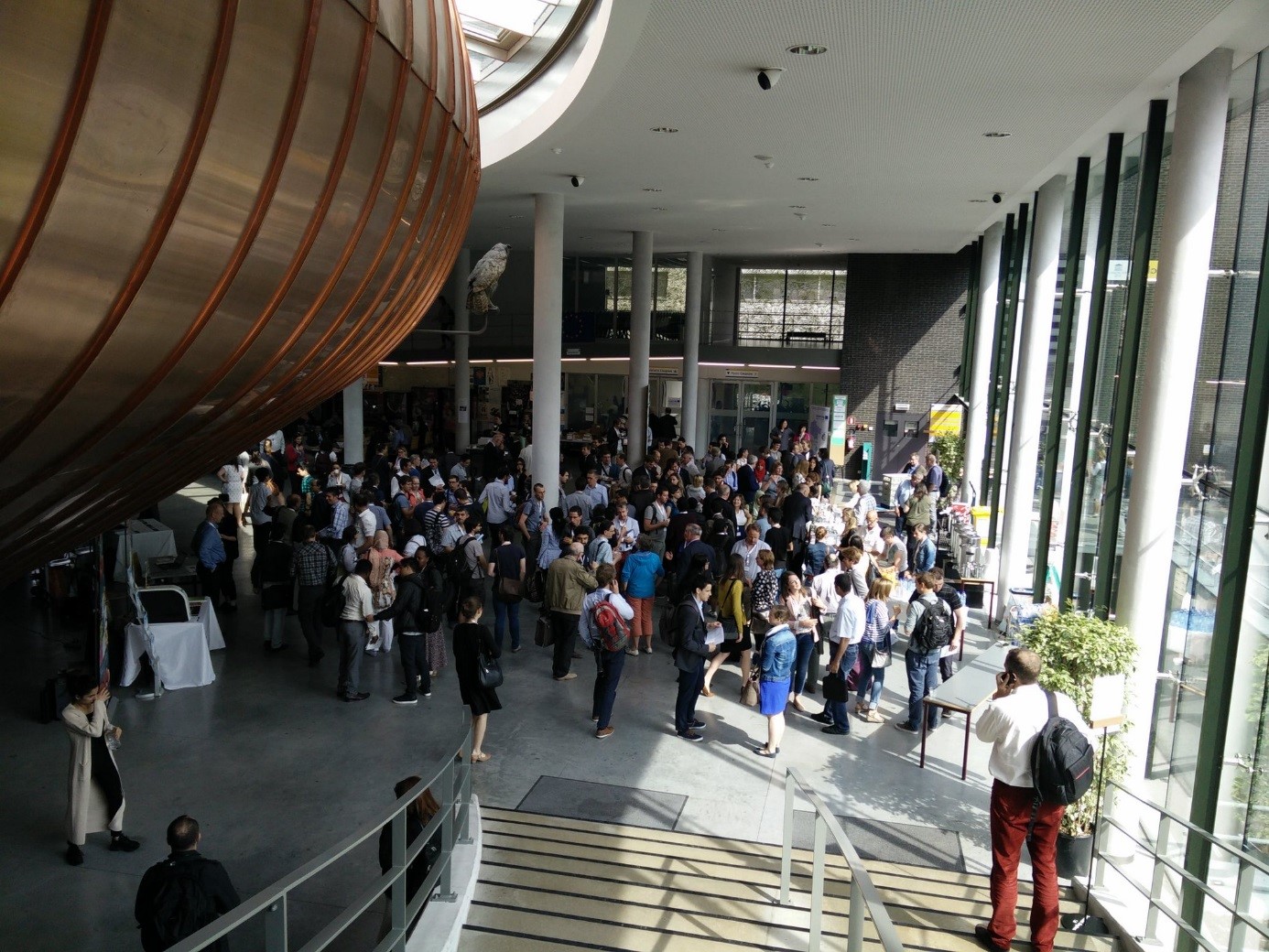Education on crop protection is key for a more sustainable future

The International Symposium on Crop Protection (ISCP) at Ghent University yearly focuses on the latest innovations in crop protection. For the 69th edition many international universities and some industrial partners, like Eastman, Clariant & Bayer, were present to share their vision on the future of crop protection. All agreed that new technologies and further research on crop protection are crucial to obtain a more sustainable agriculture.
Professor Pieter Spanoghe, the chair of this ISCP, adds education and proper training to that list. He will also organize the IUPAC 2019 global congress on crop protection that will come to Ghent in May 2019. This four-yearly event can be seen as the Olympics in crop protection. The theme will be education, because future researchers, farmers and the general public need to be properly educated globally on the science and use of crop protection.
Crop protection chemistry
An important part of crop protection is the chemistry. Pieter Spanoghe, who is professor in crop protection chemistry at Ghent University (UGent), agreed that chemical crop protection products are extremely useful, and further improving their formulation and application is essential to reduce unwanted side effects on man, animal and the environment. However, the formulation of chemical crop protection products can be tricky sometimes. “It is always a challenge to ensure that crop protection chemicals remain as efficient on the field as they are in the lab”, said professor Peter Baur from Clariant Industrial. And that is just one of the many challenges in crop protection that also applies to the new formulation of non-chemical products such as biopesticides.
Crop protection (chemistry) is a very wide subject. There are loads of different approaches to it and a variety of different research is done within the theme. Besides making the products better many researchers study the effects of the products on the environment. One example is the work of associate professor Christopher Cutler from Dalhousie University on the effect called ‘hormesis’. That is when a plant grows faster after it has been treated with a small dose of a certain herbicide. Or when a small dose of insecticide has beneficial effects on insects. Apparently the phrase ‘What does not kill you, makes you stronger’, is not that farfetched after all.
Sharing knowledge
To face the challenges and find better solutions, the academic world and the industry should work together. According to professor Baruch Rubin from the Hebrew University of Jeruzalem, industry and academy should join forces to further develop crop protection. That is also why symposia and congresses like the International Symposium on Crop Protection (ISCP) and IUPAC 2019 are so important. Bringing experts from all over the world together to exchange knowledge can only benefit the agricultural world.
Only by sharing our knowledge with one another, can we further improve technologies in the crop protection world. To tackle the current and upcoming agricultural challenges, we must work together and make sure our knowledge gets passed on to the future generations. They are the ones who will have to conduct more research and find new solutions for future threats. The importance of good training and education can never be underestimated.
Education is key
Ghent University is renowned for its high-quality education and cutting-edge research. Prof. Anne De Paepe, rector of Ghent University hopes that by organising international conferences like the ISCP and IUPAC 2019, Ghent University will maintain and even strengthen its position at the international forefront of science. That is why she also insisted everybody save the date for the IUPAC 2019 congress.
“Innovation in crop protection is a very important subject and it is our duty to educate the current and future generation of researchers and farmers”, concluded the rector. Interesting fact-based discussions on crop protection can broaden our minds and interaction with other specialists can give us new insights. But this knowledge also needs to be better translated to the general public in an unbiased way. That is why education is also the theme of the IUPAC 2019 congress.

